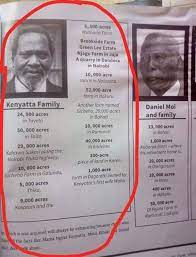This is a saying among the Bukusu of Western Kenya. The moral is that before you try anything new, you better consult those who have preceded you and have experience.
The Narrative: During 1780s, before British invasion, the BaBukusu were involved in tribal warfare. It was a period of instability despite their unmatched military prowess. One day, the Bukusu living in Ebwayi noticed smoke rising from a distant hill. They became suspicious that an alien (Barwa) community might have settled there that might be aggressive and threaten the peace of the community.
Wisdom of the old says that the community appointed a young man, Kitimule as the chief diplomat to lead expedition to find more about the mysterious smoke. Besides being well built, the son of the soil was born-orator who melted people’s hearts. He was the son of Wetosi of the Watukwika Bakitang’a Cluster. Kitimule was a man of caliber and had even been endorsed by Namunyulubunda, the community seer at the time.
Kitimule and led the emissary of eight people for the covert mission. It took two days to reach the destination, mostly travelling under cover of darkness. They arrived at the compound dressed in leaves and branches as sign of peace.
They found that the strange community was indeed the Bayumbu, speaking close language to Bukusu. They belonged to Babayi Basilikwa who had branched off by Bukusu back in the day and moved eastwards. However, in the course of their migration they had lived in caves and countered with Barwa Bakinisu (Kalenjin) and Bamasai Baruku (Masai) and they adopted gross behavior. They had strange and inhuman customs including cannibalism (eating people)
Kitimule got to inquisitive of their culture and expressed open resentment to their way of life.
They Bayumbu, day by day, got tired of the inquisitive stranger. They attacked and seized Kitimule and chopped off two fingers off the left foot. The 8 colleagues bolted and rushed back home. Kitimule, did not die but survived and limped back home tired and weary.
On reaching home, the Babukusu gathered around him eager to listen to the tales of the strange people. Weary, he showed them the mutilated foot. The people became horrified by Kitimule’s suffering. The leaders became uncomfortable with the independence of Bayumbu Clan and started military organization. Kitimule later went again with a larger delegation with cattle, grain and beer to seal diplomatic ties with both communities. This time, though, he was accorded military escort and the mission was a success.
The Bayumbu became a great ally and the merger meant increased Bukusu military strength. Bayumbu, being smaller clan adopted Bukusu Customs fast and gave allegiance to Basilikwa cluster (who claim oath of Namurwa). Kitimule remained an icon and diplomat who was respected beyond valleys or hills, although he had got his lesson by being too inquisitive in strange lands.
A story is good, until another one is told..










